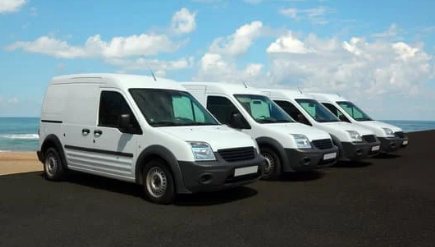Table of Contents
Starting a small business doesn’t always have to be one of the most expensive ventures. There are some businesses you can start that don’t cost too much. One of these includes being a delivery or courier service. In this article, we’ll go over everything you need to begin a delivery service.
What You Need to Start a Small Courier Service?
Invest in Your Own Fleet
 Interestingly enough, courier services are pretty flexible in how they can do business. They can either start themselves or invest in their own designated fleet. A fleet is a group of vehicles that are owned by a business and used for various purposes. In this case, it’s primarily going to be used for delivery, but it can also be utilized for marketing strategies as well.
Interestingly enough, courier services are pretty flexible in how they can do business. They can either start themselves or invest in their own designated fleet. A fleet is a group of vehicles that are owned by a business and used for various purposes. In this case, it’s primarily going to be used for delivery, but it can also be utilized for marketing strategies as well.
Keep in mind, that a fleet is the biggest investment a courier service will make. Not only do the vehicles cost a lot, but you’ll also need to make sure they’re properly equipped according to the rules and regulations.
A fleet must have things such as ELDs, tachographs, dash cams and GPS tracking systems installed before they can hit the road. This is to minimize liability and prevent any legal troubles. Depending on what you plan on delivering, you might have to install reefers.
Reefers are basically refrigerators in the form of a trailer. They’re what keeps inventory in good condition, like frozen goods. Reefer trucks can cost as much as $35,000, so you might have to look into alternative financing methods such as a business loan.
Decide on a Name and Business Structure

Funny enough, deciding on a name for your delivery startup can be one of the most time-consuming parts. In fact, it’s not uncommon for newcomers to spend at least a few days brainstorming ideas. If you’re struggling to pick a name, try to centre it around the niche you’ve chosen.
Each delivery business caters to a specific niche. GrubHub is a courier service that caters to shuttling fast food to your doorstep. After you’ve decided on a name, you must then determine what structure your business will be. A business structure is basically how it handles things such as taxes and legal claims. There are four main types of business structures,
- Sole proprietorship
- Corporation
- Partnership
- Limited liability company (LLC)
A sole proprietorship is where you’re responsible for everything relating to your business. You must file the taxes and handle legal proceeds. A corporation is where you pay business taxes based on profit via an IRS 1120 form. A partnership is where you share the responsibility with another person.
A limited liability company is the best option to go with as a beginner. This is because LLCs keep business owners safe from liability, debt and taxes. It’s to give them some breathing room, so they can focus on building their business without having to worry about too much.
Take it Slow at First
 One of the biggest mistakes you can make opening any kind of startup is rushing through the process. Rushing can cause you to overlook something really important and make mistakes more common. It also prevents you from being organized and makes it difficult to keep track of things.
One of the biggest mistakes you can make opening any kind of startup is rushing through the process. Rushing can cause you to overlook something really important and make mistakes more common. It also prevents you from being organized and makes it difficult to keep track of things.
Always take things slow and use the opportunity as a learning experience. Create a must-do checklist for your startup before launching and follow it. This process can get exciting, and excitement can cause you to stray and act on adrenaline but you’ll want to be sure that you are not missing key components because you got too carried away.

